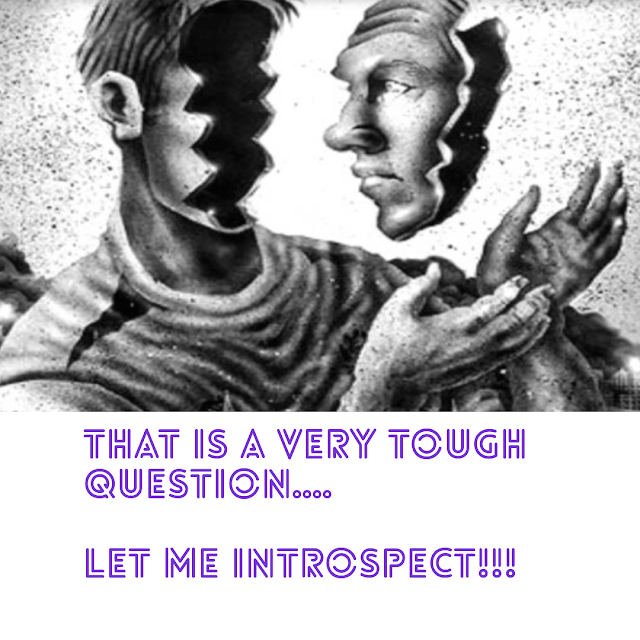To React or To Respond? That Is The Question

In a situation, especially a provoking one, how would you choose to react or respond? Would you base your actions on your instincts? Or, would you wait, think the situation over and then respond?
It is so easy to get provoked and then react. Now, there are two ways to deal with something, you either react or wait for a while and then act. The latter is when you respond. Which one do you think is better? Again, even when thinking about answering this question, try and respond.
By reacting we mean not thinking before doing something. It is about not measuring the pros and cons of that situation which might further land you in trouble. And then, there is another way of dealing with things. When You respond, You try to combine both your heart and mind and then deduce down to a decision.
In this blog we’ll take a 360 degree perspective of why you should learn to respond not react. But, before we move ahead look at the following situations and think what would your reaction be? Do let us know in the comments section if you would respond or react. But, before you comment, read the rest of the blog from start to end.
|
Time To Introspect
Source – memyinnerthoughts Will You React Or Will You Respond? |
| 1.Your child accidentally breaks a vase and you instantly scold him |
| 2.You are approached by a beggar asking for money and instead of giving him money, you offer him something to eat |
| 3. A friend of yours shouts at you in public and you too shout back and hurl insults at your friend |
| 4. You make a decision and your father rejects it. You immediately get into an argument with him |
| 5. You are waiting in a hurry and waiting for your chance to get billed at a shopping mall. An old person standing in front is talking a lot of time |
| 6. Just as the traffic light turns green, you see a person stopping you so that he can cross the road and you get angry and shout at him so as to why he or she tried to stop you |
Respond Vs React – What Is The Difference?
The difference between responding and reacting is giving yourself a halt. It could be a few seconds or more, but that creates all the difference.
That’s the time you can ponder upon the whole situation and deal with things like a boss!
When you react, you rely only on your gut feeling and instincts. You are hardly bothered about the consequences that your actions would lead to. It’s almost as if you have mistakenly put your finger on a pin. Reacting is mostly when you are finding it hard to get out of your comfort zone.
But, when you respond, you think. As a result a connection is formed between your unconscious and conscious mind. When this happens, the logic kicks in. Unlike what many might think, even the emotions are involved but they don’t overpower your logic, your ability to think. You are still able to come up with situations to the problem. And, you are way more mindful and aware, and have a better presence and frame of mind.
How To Respond Rather Than React ?
The best way is to think things over. We are not asking you to think things too far and indulge in overthinking something we have stressed upon enough in this podcast. Now, with that out of the way, let’s quickly look at the ways you can learn to respond and not react –
1. Pause

Consciously hold yourself and take a deep breath before uttering anything. If a teen on a cycle has bumped into your car, wait for a while before giving him your piece of mind. Now, give this situation some thought.
2. Try and Take Perspective
Take into perspective the things that could have gone wrong with the child. Maybe he jittered seeing a bigger vehicle. Next, you could also check if the child had hurt himself. Once, you see everything is okay, maybe you could impart some wisdom and tell the child to be careful next time.
3. Manage Emotions And Think Objectively

You would obviously be inclined to shout back at a relative who hurls provocative comments at you. Now, hold back your anger for a second and think if you shout and revert with the same line of comments, it can put your relations with that person in danger. Instead, try to calm that person down and reason with them why there is so much anger.
4. What Was The Trigger?
Do this when sitting alone especially after you have been in an incident where you reacted. With a cool mind, analyze the trigger. It could have been a preconceived notion towards a person you don’t like. It could have been a third person instigating you against a friend. Now, when you exercise this, you learn to dodge the blind spots or common triggers.
5. Develop Hindsight To Tackle Situations Skillfully Like A Wise Man

We have already talked about some life changing ways that can make you wise. While you practice these, also take a conscious to deal with circumstances that often happen in your life and where you react a lot. For instance, maybe you are new to a job and have a hard time taking several tasks at once. And, you are inclined to leave a task unfinished and jump on to another. So, maybe you could consult an experienced colleague who would be able to help you with juggling with tasks and inspire you to handle multiple tasks efficiently.
How To Help Others Respond ?
It’s a sign of a great person to empower others to become great. If you see that your friends, family, colleagues and others are finding it hard to walk the path, lead by an example and show them how they can learn to respond and not react.
1. Lead By Showing How It’s Done
Being the change is the best way to bring about a change. So, lead by an example, as in the above case, once your subordinates and other colleagues see you efficiently juggling with tasks, they’ll be motivated to learn the skill from you. You are indeed creating wonders and helping others create wonders too.
2. Give Feedback And Motivate
Just as you have learned from mistakes and have started to respond rather than react, let the other person know where he or she is going wrong or how he or she should have reacted to avoid a tiff. This way they’ll get motivated to become better.
3. Change The Environment
This might not be possible every time but if you see two dear friends in an aggressive conflict that can spoil their relationship, try to get one or both the friends out of that environment. Next up, explain it to them the whole situation and where each of them went wrong and how they could have thought things over with a better frame of mind.
Were We Able To Change Your Perspective? From Now On Would You React Or Respond?
None of us are perfect! We do tend to react at times which are completely human. But, for becoming better humans, why not learn to respond not react?
Consider this scenario – when we get hurt over a period of time, a scab is formed over the wounds. The scabs are a sign that wounds are healing. Now, if you pick scabs and peel them off halfway, it might just worsen the wounds. It would be better if you even try and resist the tendency to itch the scabs and probably apply some lotion or prescribed medicine. Same goes with reacting to situations. If you become aggressive and then react, situations may just become worse. Instead, think, discuss with others at times and respond to situations with care.
You May Like These Also:
What Are The Things To Do If I Have No One To Talk To?





















